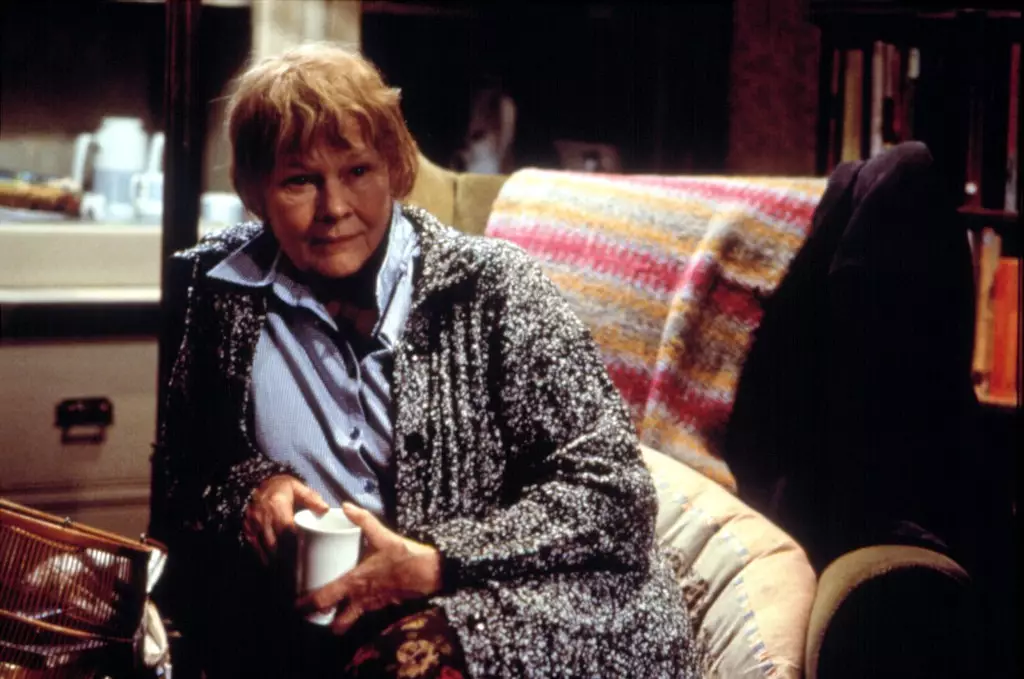Dame Judi Dench, an iconic figure in British cinema, is leveraging her celebrity status to advocate for a cause that is more critical than most would prefer to recognize: the dire state of dementia diagnosis in the UK. Her poignant portrayal of Iris Murdoch in the 2001 movie “Iris” brought attention to the harrowing effects of Alzheimer’s disease, showing us how this condition can not only erase cherished memories but also strip away one’s very identity. Today, Dench is calling on the British government to reform the National Health Service (NHS) for more timely and accurate dementia diagnoses. This comes at a time when official inaction seems to echo the growing problem that affects almost one million people in the UK, many of whom remain undiagnosed and lost in a fog of uncertainty.
However, the statistics unveil an unsettling reality that makes one question the efficacy and urgency of the UK healthcare system. A staggering one in three people grappling with dementia are living without a formal diagnosis. In England, the situational despair is worsened with some individuals waiting up to a year for a diagnosis post-referral. Those in the most economically disadvantaged areas frequently endure even longer delays, creating a two-tier system where wealth dictates the urgency of medical intervention. It’s unacceptable that in a time of technological advancement and medical knowledge, such inefficiencies persist.
The Campaign for Change: Alzheimer’s Research UK
In light of this alarming scenario, Alzheimer’s Research UK has initiated a campaign dubbed “Dementia Unseen.” This campaign is not merely an awareness effort; it is a clarion call to action, demanding that the government improve access to timely diagnosis and care for dementia. Dench’s involvement lends a powerful voice to the cause, using her influence to shed light on what remains a largely hidden crisis. This campaign’s objectives are particularly ambitious yet necessary: to have people referred to specialists within six weeks and receive a comprehensive diagnosis along with a treatment plan within 18 weeks.
However, the government’s recent decision to shelve a crucial target — achieving a diagnosis rate of 66.7% for those over the age of 65 — casts a shadow over this initiative. It begs the question: how can we genuinely claim to care about the well-being of our elder population while simultaneously scaling back on our commitments? It seems almost barbaric to allow bureaucratic hesitancy to overshadow the lives of potentially hundreds of thousands who are currently left in limbo.
The Human Cost of Inaction: Memories Lost and Futures Stolen
Dench eloquently articulates the emotional repercussions of delayed diagnosis, stating, “Dementia doesn’t just take away memories — it can take away identity.” Those words serve as a stark reminder that behind statistics are real lives marked by heartbreak and confusion. Imagine the despair within families, watching their loved ones slip away without knowing the “why” of their changing behaviors. They are deprived of the opportunity to engage meaningfully in the remaining time they have, held captive by uncertainty and fear.
Alarmingly, dementia is projected to escalate by 43% by the year 2040. This impending crisis calls for immediate actions, not just for awareness but for systemic change. The lack of early diagnosis prevents people from accessing vital treatments that might slow the progression of symptoms. It tragically strips away agency and control during a time when both can make all the difference in coping with an overwhelming situation.
A Call for Collective Responsibility
Hilary Evans-Newton, the Chief Executive of Alzheimer’s Research UK, echoes a sentiment that resonates profoundly: every person living with dementia deserves to understand the illness plaguing them. It’s a fundamental right to seek clarity, to have a diagnosis that opens the door to treatment options. As Dench and Evans-Newton rally public support, it is evident that citizens, too, have a role to play.
Awareness is crucial, but it must be action-oriented; signing petitions, attending rallies, and holding the government to account for its failures are responsibilities we all share. Dench’s words remind us that advocacy is not merely for the benefit of individuals but for society as a whole — ensuring no one has to endure the agonizing journey of dementia in ignorance and silence. It’s time to confront this pressing public health crisis head-on, taking the right steps towards a future where no one is left in the dark of adolescence unraveled by the grips of dementia.



Leave a Reply